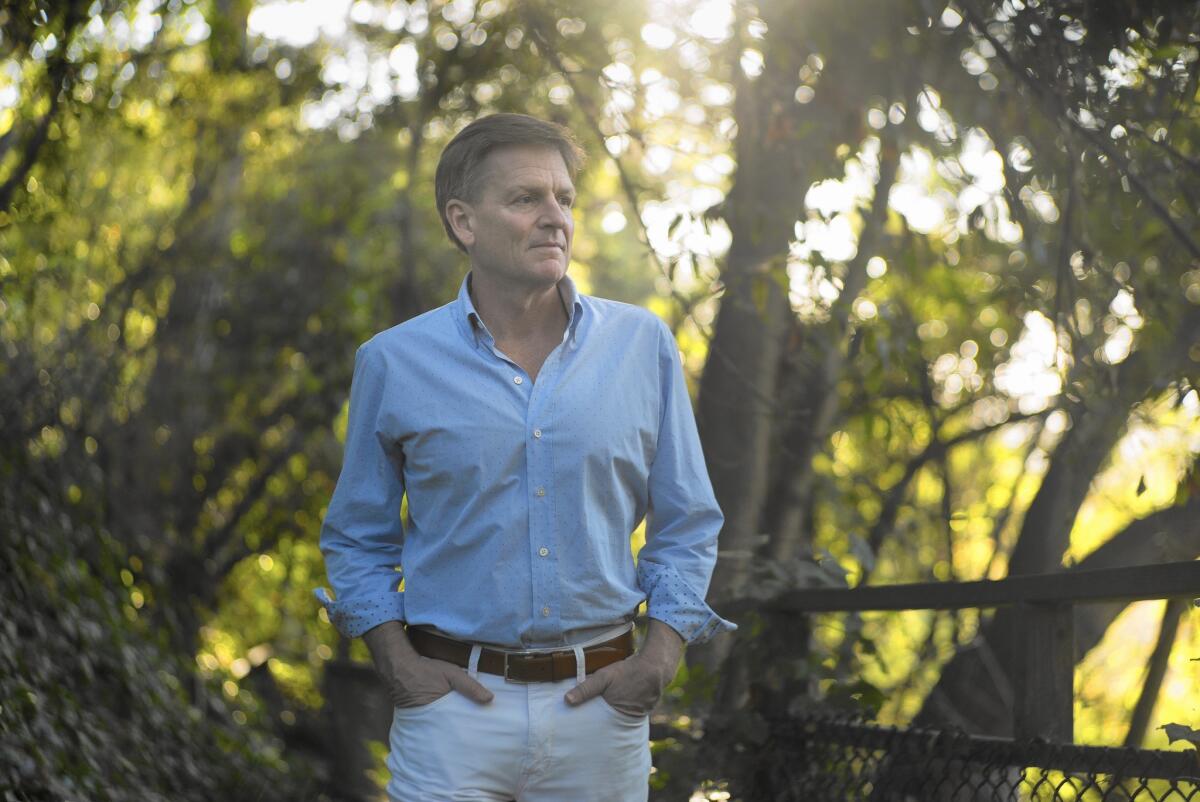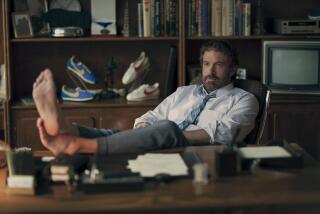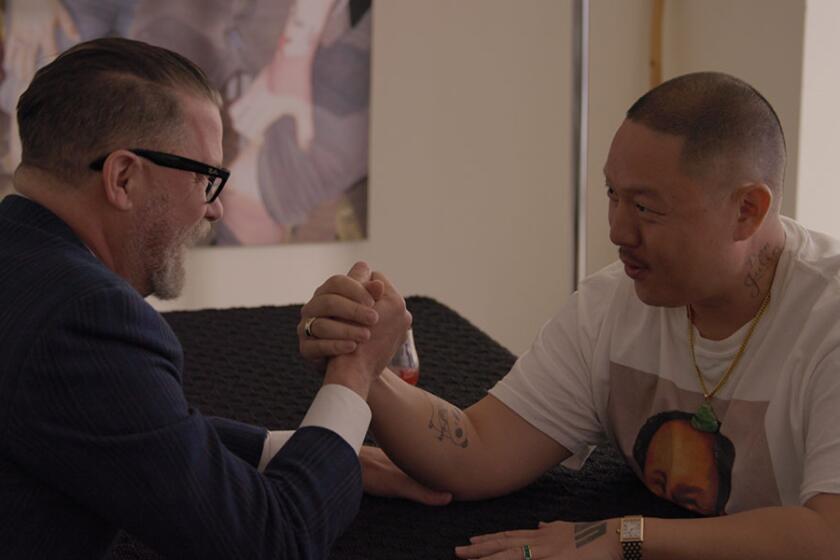Movie Sneaks: Why Michael Lewis says Adam McKay gets the Wall Street meltdown right in ‘The Big Short’

Steve Carell read Michael Lewis’ book “The Big Short,” which chronicles the 2008 mortgage debt meltdown and the Wall Street outsiders who saw it coming, in just about one sitting. “Loved it,” Carell says. “Had to read it a second time because I wasn’t sure I got it all the first go-around but absolutely loved it. I just couldn’t understand how they were going to make a movie out of it.”
Lewis has heard that before. When the popular author sold his 2003 baseball analytics bestseller “Moneyball” to Columbia Pictures, the book’s primary subject, Oakland Athletics executive Billy Beane, balked at selling his own rights.
SIGN UP for the free Indie Focus movies newsletter >>
“I said, ‘Billy, don’t worry. It’ll just be an annuity. People will be [spending] years writing a screenplay, but nothing will ever happen,’” Lewis remembers. “And, for years, that looked to be the case.”
Lewis thought the same thing when Paramount bought “The Big Short” last year with Brad Pitt’s Plan B Entertainment producing. The material had plenty of interesting characters — the canny oddballs who ran the numbers and bet against Wall Street — but it also required that any adaptation explain, say, the nature of collateralized debt obligations.

“And once you tell somebody that, they just look at you with a glazed expression,” Lewis says by phone from San Francisco.
One person who didn’t blink was filmmaker Adam McKay, the writer-director of such absurdist, quotable comedies as “Talladega Nights,” “Step Brothers” and the two “Anchorman” movies. McKay signed on in March 2014 and did a rewrite of the script, which was good enough to persuade Carell, Christian Bale and Ryan Gosling to take the lead roles of the financial outsiders, with Pitt agreeing to take a small supporting part.
For Lewis, the material’s social importance required a filmmaker with a deep, passionate activist bent — and he wasn’t sure McKay was the guy. But after meeting with him, Lewis came away convinced.
“He had stuff inside him untapped,” Lewis says, adding that a closer inspection of McKay’s work, including the Funny or Die video website McKay founded with Will Ferrell, reveals a subversive streak bent on lampooning the more ridiculous aspects of American culture.
That kind of sly humor permeates “The Big Short” (which opens Dec. 11 in limited release before going wide two weeks later), particularly in the scenes where McKay brought in an eclectic range of celebrities — Selena Gomez, for one — to directly address the camera and explain the finer points of finance.
“When I saw that on the page, I thought, ‘This doesn’t work,’” Lewis says. “But when I saw it on the screen, I thought it was brilliant. Because it’s telling people that if they think twice, it should occur to them that they really don’t need Selena Gomez to explain debt obligations. They should get it themselves in the first place.”
Lewis, who began his professional career working for the Wall Street investment bank Salomon Brothers, hopes the movie might at least help viewers understand the causes of the financial collapse and demand vigilant oversight so it doesn’t happen again.
“It’s just a movie,” he says with a shrug. “But I think it’s the first movie that’s really about Wall Street and that really gets it right. And when people understand how outrageous it is, it might trigger a conversation.”
MORE:
Holiday Movie Sneaks: ‘Spectre,’ ‘Star Wars,’ ‘Hateful 8’ and more
Sylvester Stallone is back as Rocky Balboa – but this time he’s in a fight with mortality
Hunger Games finale: A behind-the-scenes glimpse of the final assault in ‘Mockingjay — Part 2’
More to Read
Only good movies
Get the Indie Focus newsletter, Mark Olsen's weekly guide to the world of cinema.
You may occasionally receive promotional content from the Los Angeles Times.











